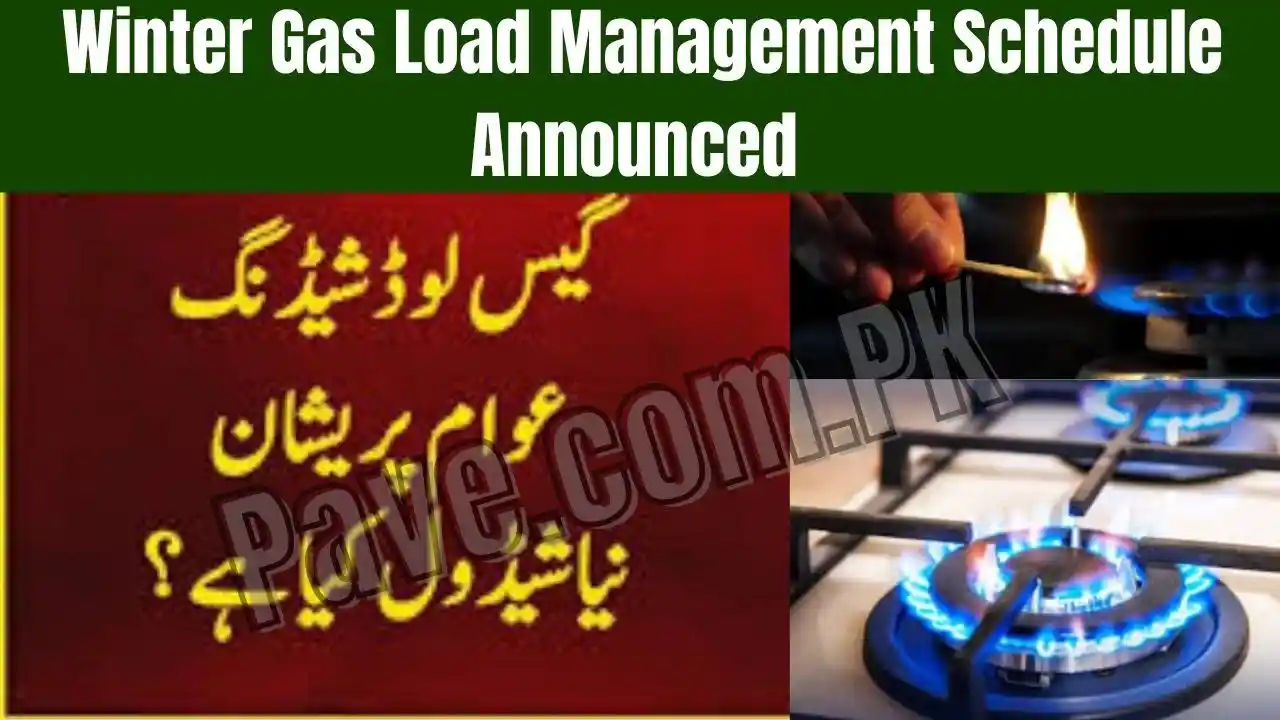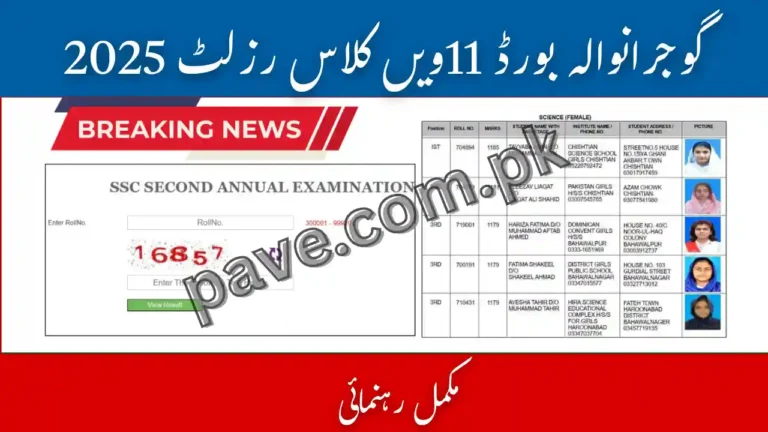Winter Gas Load Management Schedule Announced Across Pakistan – Complete Details, Timings, and Impact Analysis
Introduction
The federal government, in collaboration with the gas distribution companies SNGPL and SSGC, has officially announced the winter gas load management schedule across Pakistan. With temperatures dropping and gas demand rising sharply, authorities have moved toward a controlled distribution strategy to ensure equitable supply for domestic consumers. The winter season has historically posed serious challenges due to limited gas reserves, outdated pipelines, and increased consumption between December and February.Winter Gas Load Management Schedule Announced Across Pakistan – Complete Details, Timings, and Impact Analysis
This year’s schedule aims to prioritize essential household usage, prevent pressure drops, and reduce illegal gas connections while maintaining manageable system load. Urban centers, rural belts, and industrial zones will experience scheduled supply windows, with an emphasis on breakfast, lunch, and dinner hours. Commercial users, particularly tandoors, bakeries, and restaurants, will follow a separate policy. CNG stations in key provinces will face longer shutdown periods, aligning with government conservation directives.
The newly announced timings are expected to affect daily routines, cooking habits, business operations, and industrial productivity. Gas companies have urged citizens to adopt energy-saving measures, avoid unnecessary heating, and utilize electrical alternatives where possible. Authorities also warn that theft, compressors, and pressure boosters will result in strict penalties and legal action.
Official Domestic Gas Supply Timings
Domestic consumers will receive gas according to the following time windows:
- Morning: 6:00 AM to 9:00 AM
- Afternoon: 12:00 PM to 2:00 PM
- Evening: 6:00 PM to 9:00 PM
Outside these hours, gas pressure will be significantly reduced to stabilize the national distribution system. This approach ensures households can cook during peak hours despite prevailing shortages.
Commercial Sector Restrictions
Restaurants and commercial kitchens will face limited supply, particularly during late-night hours:
- No supply after 10:00 PM in major urban areas
- Reduced pressure in industrial-grade zones
- Priority given to tandoors operating under government subsidy programs
The hospitality sector may rely more heavily on LPG cylinders and electric equipment.
Read Also: Latest Updates:Punjab Government to Launch New University Ranking System
Impact on CNG Stations and Transport Sector
Compressed Natural Gas stations will remain closed for multiple days per week, depending on regional demand and source availability. This step aims to divert gas toward residential consumption. Public transport operators have been advised to schedule fueling during limited opening windows.
Industrial Load Management
Gas allocation for non-export-oriented industries will be curtailed during peak winter weeks. Export-oriented textile, manufacturing, and processing plants may receive partial relief to protect foreign revenue. Companies using captive power systems are expected to rely on alternative fuels such as RLNG or furnace oil.Energy experts argue that Pakistan’s recurring winter gas shortage highlights a significant gap between national consumption patterns and resource management policies. To resolve this long-standing problem, structural reforms must be prioritized instead of temporary seasonal planning. Authorities are considering a gradual transition away from legacy pipelines toward modern, high-pressure distribution systems capable of supporting rapid demand surges without compromising safety or pressure.
Further emphasis is being placed on enhancing domestic gas exploration through public-private partnerships. Many of Pakistan’s existing natural gas fields have reached maturity, producing at reduced capacity. Modern drilling technologies, seismic mapping, and international exploration agreements may open new reserves that could improve supply stability within the next decade. Additionally, the government is evaluating the potential of shale gas extraction, although environmental and cost-related challenges persist.
Energy economists also encourage diversifying the national energy portfolio. Countries facing similar climatic conditions have successfully integrated large-scale solar heating systems, district heating networks, and advanced insulation standards. Promoting efficient building materials and smart appliance regulations at the consumer level can significantly reduce annual gas consumption.
Furthermore, industrial policy reforms could encourage export-oriented sectors to adopt hybrid energy systems, reducing their dependency on conventional gas supplies during peak months. Overall, long-term planning, technological investment, and consumer awareness are critical pillars for achieving sustainable winter energy security in Pakistan.
Regional Demand Analysis
Northern regions including Punjab and Khyber Pakhtunkhwa typically experience higher consumption due to severe winters. Coastal regions such as Karachi may face pressure fluctuations as distribution shifts toward colder climates. Authorities have acknowledged the regional imbalance but emphasize national necessity.
Causes Behind Winter Gas Shortages
Several systemic factors contribute to winter load management:
- Declining domestic gas reserves
- Aging field production systems
- Increased population and residential connections
- Delayed pipeline expansion projects
- Limited LNG import capacity
- Higher heating appliance usage
Energy experts warn that unless exploration and import infrastructure expand, winter shortages may persist annually.
Alternative Fuel Recommendations
Households are encouraged to consider:
- Electric heaters with low-wattage settings
- LPG cylinders from authorized dealers
- Instant geysers for reduced water heating load
- Solar water heating kits where feasible
Efficient appliance usage can meaningfully reduce strain on the national gas grid.
Government Measures to Reduce Theft
Authorities have intensified surveillance to combat:
- Illegal connections
- Domestic compressors
- Unauthorized underground tapping
- Pressure-booster devices
New inspection teams will impose fines, disconnect supplies, and pursue FIRs against violators.
Consumer Rights and Complaints
Citizens can report:
- Illegal gas theft
- Compressor usage
- Billing discrepancies
- Leakage hazards
Complaints may be registered through:
Read Also: Breaking News: ASF Test Venues Revealed for New Recruitment 2025
- Company helpline numbers
- Official mobile apps
- Field complaint offices
- Complaint portals linked to the Petroleum Division
Safety Advisory
During low-pressure periods, consumers should avoid leaving stoves on to prevent gas build-up. Ventilation is crucial to prevent carbon monoxide poisoning, especially when using heating appliances and geysers.
Economic Impact and Forecast
Gas shortages increase reliance on expensive fuels, potentially impacting:
- Manufacturing costs
- Food prices
- Household utility expenses
- Transport fares
Economists predict temporary inflationary effects, particularly in urban cooking and heating markets. Export sectors may face compressed output windows, affecting foreign revenue targets.
Read Also: Punjab Launches Doorstep Driving License Facility for Women
Public Reaction
Feedback remains mixed. Many accept load management as an unavoidable seasonal reality. Others criticize infrastructure delays and lack of long-term planning. Demand continues to rise faster than supply, placing pressure on policymakers.
Future Solutions Under Consideration
The government is reviewing:
- New LNG terminals
- Pipeline capacity expansion
- Offshore gas exploration
- Regional import agreements
- Domestic field revitalization programs
Transition to renewable energy is also encouraged to ease long-term dependency.
Conclusion
The winter gas load management schedule announced across Pakistan reflects the country’s ongoing struggle to balance limited energy resources against rising seasonal demand. While the current distribution model ensures essential domestic usage, it will require households, businesses, and industries to adapt their routines and consumption behavior. Authorities urge responsible usage, legal compliance, and patience as infrastructure upgrades continue. Long-term solutions remain dependent on successful energy diversification, exploration, and international energy partnerships.
Managed conservatively, the winter season can pass with minimum disruption. However, effective cooperation between government, gas companies, and consumers is essential to stabilize Pakistan’s energy future.







